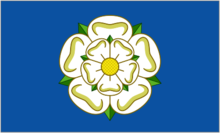
In Britain, Boxing Day is usually celebrated on the following day after Christmas Day, which is 26th of December. However, strictly speaking, Boxing Day is the first weekday after Christmas (see definition in the Oxford English Dictionary).
Like Christmas Day, Boxing Day is a public holiday. This means it is typically a non working day in the whole of Britain. When Boxing Day falls on a Saturday or Sunday the following Monday is the public holiday.
Why is 26 December called Boxing Day?
Traditionally, 26 December was the day to open the Christmas Box to share the contents with the poor. And what is a Christmas Box? The Christmas box was a wooden or clay container where people placed gifts.
Boxing Day origins; Christmas Boxes were used in different ways:
-To protect ships: Exploration ship during the Age of Exploration, when great sailing ships were setting off to discover new land, A Christmas Box was used as a good luck device. It was a small container placed on each ship while it was still in port. It was put there by a priest, and those crewmen who wanted to ensure a safe return would drop money into the box. It was then sealed up and kept on board for the entire voyage. If the ship came home safely, the box was handed over to the priest in the exchange for the saying of a Mass of thanks for the success of the voyage. The Priest would keep the box sealed until Christmas when he would open it to share the contents with the poor.
-Church To help the poor: An 'Alms Box' was placed in every church on Christmas Day, into which worshippers placed a gift for the poor of the parish. These boxes were always opened the day after Christmas, which is why that day became know as Boxing Day.
-A present for the workers: Many poorly paid workers were required to work on Christmas Day and took the following day off to visit their families. As they prepared to leave, their employers would present them with Christmas boxes.
During the late 18th century, Lords and Ladies of the manor would "box up" their leftover food, or sometimes gifts and distribute them the day after Christmas to tenants who lived and worked on their lands.
And the tradition still continues today ......
The tradition of giving money to workers still continues today. It is customary for householders to give small gifts or monetary tips to regular visiting trades people (the milkman, dustman, coalman, paper boy etc.) and, in some work places, for employers to give a Christmas bonus to employees.
Schools across the country gather together gifts to be put in Christmas Boxes that are sent to poorer countries.
